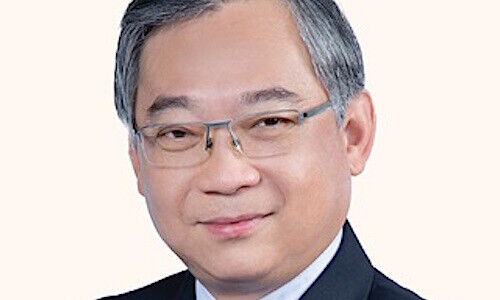Gan Kim Yong: Swift US Return to Status Quo «Not Likely»
With growing bipartisan support for the use of tariffs, a US return to the previous free trade status quo is «not likely» to happen soon, according to Singapore Deputy Prime Minister Gan Kim Yong.
During the Association of Banks in Singapore's (ABS) 52nd annual dinner on June 25, the city-state’s Deputy Prime Minister Gan Kim Yong spoke about four fundamental changes that are affecting the world and how banks can respond. They include geo-economic disruptions, climate change, technological advancements and an aging population.
The speech was delivered immediately following the launch of Singapore Payments Network Limited (SPaN), a non-profit entity that will consolidate the administration and governance of Singapore’s eight national payment schemes, such as FAST, GIRO, PayNow and SGQR.
US Tariffs
On geo-economic disruptions, Gan spoke about US tariffs and their impact on banks, such as reduced trade-related financial services because of weaker trading activity and lower lending activity. The industry can respond by offering flexible financing options, supporting growth and expansion to new markets, helping de-risk cross-border trade and adopting digital trade platforms.
«[I]t is not likely that the US will return to the status quo ante any time soon,» noted Gan, who is also the chairman of the Monetary Authority of Singapore (MAS) and Minister for Trade and Industry. «There is growing bipartisan consensus within the US on the use of tariffs to achieve fair and balanced trade with the world, as well as to ‘re-shore’ or ‘near-shore’ critical industries.»
Low-Carbon Transition
On climate change, Gan underlined the need for clear, consistent and credible guidelines and the training of financial professionals to obtain the necessary skills. He highlighted efforts such as the promotion of the use of Singapore-Asia Taxonomy (SAT), launched by MAS two years ago. NUS Business School will also be introducing an undergraduate specialization in sustainable finance.
«Even though some countries have rethought their climate commitments, particularly in light of the US pulling out of the Paris Accords, the pace of climate change unfortunately has not slowed down, and in fact is accelerating,» Gan said. «It is therefore important that we stay the course and remain committed to climate action; otherwise, we might be forced to make an even more drastic move and more costly transition in time to come.»
Artificial Intelligence
With regard to technological change, Gan spoke about opportunities in artificial intelligence, such as scams and fraud detection, as well as risks like impact on the job market and the need for guardrails to guide development and adoption.
«In the short span of the past five years or less, AI has grown to become a core enabler of transformation within the financial sector, reshaping how financial institutions operate, how customers engage with financial services, and how banks drive innovation and productivity,» Gan remarked.
Aging Population
Finally, Gan stressed the need to focus on elders in the midst of a globally aging population by enhancing accessibility and inclusivity. This includes dedicated ambassadors for the demographic segment, the use of larger font sizes, high-contrast displays and simplified interfaces for online platforms.
«Banks also play a key role in serving the needs of the community,» Gan added.
«Our banks are critical enablers for growth, transformation and mobility. Over the past six decades, Singapore’s banking sector has been the cornerstone of our position as a global financial center [...] However, we cannot take our achievements for granted.»



























